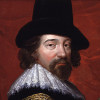“ if he be a cunning flatterer, he will follow the archflatterer, which is a man's self; and wherein a man thinketh best of himself, therein the flatterer will uphold him most: but if he be an impudent flatterer, look wherein a man is conscious to himself, that he is most defective, and is most out of countenance in himself, that will the flatterer entitle him to perforce, spreta conscientia. ”
Francis Bacon, The Essays of Francis Bacon (1597). copy citation
| Author | Francis Bacon |
|---|---|
| Source | The Essays of Francis Bacon |
| Topic | countenance good |
| Date | 1597 |
| Language | English |
| Reference | |
| Note | |
| Weblink | http://www.gutenberg.org/files/575/575-h/575-h.htm |
Context
“There be so many false points of praise, that a man may justly hold it a suspect. Some praises proceed merely of flattery; and if he be an ordinary flatterer, he will have certain common attributes, which may serve every man; if he be a cunning flatterer, he will follow the archflatterer, which is a man's self; and wherein a man thinketh best of himself, therein the flatterer will uphold him most: but if he be an impudent flatterer, look wherein a man is conscious to himself, that he is most defective, and is most out of countenance in himself, that will the flatterer entitle him to perforce, spreta conscientia. Some praises come of good wishes and respects, which is a form due, in civility, to kings and great persons, laudando praecipere, when by telling men what they are, they represent to them, what they should be.”
source



